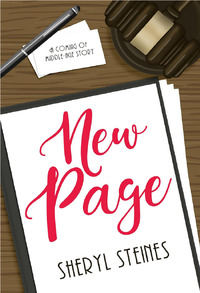 THE WARTIME BOOK CLUB |
 April's Affections and Intrigues: Love and Mystery Bloom |

Purchase
Desperate Duchesses Romance Historical Excerpt of Four Nights with the Duke by Eloisa JamesSpring, 1787 A Music Recital The Duke of Villiers’s townhouse At fifteen, Emilia Gwendolyn Carrington already had a pretty good idea of what hell was like. Mia’s governess had taught her all about Dante’s nine infernal circles. Mia’s first circle had required her to make her debut at fifteen, under the aegis of a hired chaperone, because her mother was dead. Her second circle had added a far worse indignity: her charming, widowed father was conducting a flagrant affaire with a married duchess that everyone in the fashionable world knew about. She had entered the third circle over the last year or so, when against all reason, she had fallen desperately in love with the same duchess’ son, Vander. He was the most sensitive, intelligent boy in the world (or so Mia thought). And he was beautiful too, with a face that resembled the stone angels that guarded babies’ graves. The remaining circles of hell? All six? They were revealing themselves in rapid succession. Mia had begged her father to attend the Villiers’s musicale on the chance that the object of her adoration, Evander Septimus Brody, future Duke of Pindar, would be present. It seemed probable since the Duke of Villiers’s eldest son, Tobias, was best mates with Vander. As it turned out, the house was indeed overrun with boys on holiday from Eton and among the horde was Vander, who roundly ignored her. Mia didn’t mind that: she was happy worshipping him from afar. He was too godlike for someone like her. Besides, it wasn’t as if he danced attendance on any other girl. He and the other Etonians spent their time swigging brandy although it was not yet noon, cursing loudly, and generally pretending to be far older than their fifteen years. Mia finally retreated to the library, a tranquil room with book-lined walls. She was searching the shelves for anything resembling her favorite novel, Eliza Heywood’s Love in Excess, when she heard, to her horror, the sound of boys approaching. Even worse, she quickly recognized the voices as those of Vander and his friend Tobias, who seemed to be calling himself Thorn these days. The library was at the end of the corridor, so there was no escape. Panicked, Mia dashed behind the sofa and slid down until she was entirely concealed. It was only then that she truly understood that she had entered that final, innermost circle of hell. The boys were discussing a love poem. Not just any love poem, either. They were puzzling over The Love Song of E. Septimus Brody—in other words, a poem addressed explicitly to Vander—that Mia herself had written. That she had poured her heart, her love, and her tears into. It wasn’t very good; none of her poems were very good. Still, it was her poem, and it was supposed to be safely in her desk back home. Not being bandied about at a musicale. And definitely not in the hands of the very boy she’d written it about. Even in the midst of a wave of nausea, Mia guessed what had happened. Her father had found the poem and thought it would be amusing to share with his mistress, and his mistress had in turn shared it with her son. Mia had been such a fool to give it that title. At least Vander wasn’t howling with laughter, probably because he couldn’t understand it. He and Thorn were hardly literary types, if a fifteen-year-old boy could be such a thing. “Do you suppose the part about how moonbeams kiss the sea is some sort of innuendo?” Thorn asked. Mia rolled her eyes. What an absurd suggestion. He probably still moved his lips when he read. “I don’t think so,” Vander answered, rather uncertainly. “Let’s toss it in the fire. I don’t want anyone to see it.” She had scarcely breathed a sigh of relief when there was a clatter of boots and a boy shouted, “I’ve been looking all over for you fellows. One of the Villiers twins just threw up from nerves. It stinksdown there!” “I can’t imagine why you were looking for us, Rotter,” Vander stated, sounding all of a sudden like a future duke. “We told you last week that we wanted nothing more to do with you.” “Bloody hell, no need to be nasty,” the boy retorted, entirely unmoved by this set-down. “What have you got there?” To Mia’s horror, the question was followed by the sound of a scuffle and tearing paper. If Dante had conceived of a tenth circle of hell, this was it. Francis Oakenrott was a boy as rotten as his name implied. She had met him twice, at house parties her father dragged her along to. It was a case of mutual loathing-at-first-sight. “A love poem,” he shouted, clearly delighted. “Don’t tell me that you’ve taken up with an opera dancer with a literary bent. The headmaster will have your guts for garters.” “Give me that,” Vander snarled. But Oakenrott apparently evaded capture. “Blazing hell, this is utter rubbish!” He broke into an escalating, barking laugh. Another thump followed. “Oh, for God’s sake, back off and let me read it. It’s too late to keep your little secret now. You’d think you were ashamed.” Mia pulled a sofa pillow over her face with a silent groan. She wanted to die, to fall into a crack in the floor. “I am mad with love,” Oakenrott recited, in a squeaky falsetto. “You know, I could see this on the stage. Have you been hanging about the back door of Drury Lane?” “She’s definitely cracked,” Thorn said. “Who could fancy a smelly, sweaty bloke like you?” “You’re just jealous,” Vander retorted. “She’d have to be barmy to look in your direction. Or Rotter’s.” “So who’s the madwoman?” Oakenrott said, paper rustling as he turned it over. “Emilia Carrington? You mean the daughter of your mother’s—” “Don’t,” Vander warned, his voice suddenly dangerous. There was a telling moment of silence. “Right. I’ll just go back to this literary masterpiece. No one understands my plight,” he read, his voice squealing even higher. “I like this part about themoonbeam kissing the sea. Obviously, you have the moonbeam, and she’s the sea.” He went into another barking cascade of guffaws. A sob rose up Mia’s chest, pressing so hard that pain shot through her breastbone. “You’re such an ass,” Thorn said. “How old is that girl, anyway?” “The same as me,” Vander replied. “Fifteen.” “In my dreams, you married me,” Oakenrott said, reading from the beginning of the next stanza. A tear slid down Mia’s neck. “Your beauty makes me drunk.” Oakenrott hooted. Vander groaned. She heard a hearty slap and then Thorn said, “Look at it this way, at least you’ve managed to charm a girl who knows a thing or two about brandy.” “Not as much as you do, after last night!” Vander retorted. Likely they were all drunken sots. Mia’s governess had told her that boys pretending to be men drank far too much. Oakenrott was relentless; he just wouldn’t shut up. “My room is full of moonlight, and your eyes are like pearls.” Do you suppose you’re being invited to take your pearly eyes into her moonlit room?” “I’d have to grope my way,” Vander said, and Mia could hear the laughter in his voice. “Nobody could see through pearly eyes.” Mia’s lips involuntarily shaped a curse word that she would never dare say aloud. Oakenrott whistled. “Pearls? You know what kind of pearls she’s really talking about, right? Pearl drops! Pearly potions, like we used to call it back in first form. No— wasn’t it pearly passion potions? Something like that. Anyway, this is the first poem I’ve ever read that talked about love custard!” Suddenly all three boys were laughing hysterically. “Love custard”? Mia hadn’t the faintest idea what that meant, but she knew instinctively that it was something disgusting. Boys were disgusting by nature; she’d temporarily forgotten that while pining for Vander. When she thought he was god-like. In reality he was a heartless pig. “You haven’t gotten under her skirts, have you?” Oakenrott sounded gleeful at the prospect. “Her father could take this line about being lost in your sweetness and pressure you to make an offer.” “Never!” Vander sounded so appalled that the word slid over Mia’s skin like a snake. “It’s a little odd to think that she’s been lusting after me. What sort of fifteen- year-old girl thinks in these terms? Though I suppose she is her father’s daughter.” Mia could hardly breathe because she was trying to sob without noise. He made her sound repulsive, saying that she was lusting after him. It wasn’t like that. She wasn’t like that. “Have you ever noticed her staring at you from the side of the room?” Thorn asked. “Because here it says, Like the bird that gazes all night at the moon, I gaze at you.” “Like a bird, or a Bird of Paradise?” Oakenrott put in. “Maybe she can set herself up as a literary light-skirt. One sovereign for a poem and two for a you-know-what.” “All I can say is she’s a God-awful poet,” Vander said. “Even I know that poems are supposed to rhyme.” What an idiot. Mia took a shuddering breath. She had to escape. She simply could not stand any more of this. “I think you should frame it,” Thorn said, “because I can tell you right now that no one else will think you’re pretty enough to rhapsodize about. Especially given the size of your moonbeam.” That brought on a scuffle and more laughter. At her expense. Mia could feel the air rattling in her throat. Likely it was the death rattle. Maybe she would die, and they’d find her body in this very spot. “You know, I have to warn the fellows,” Oakenrott said. “Some bloke might be chatting with her right now, having no idea what a jam tart she is.” Mia stiffened. “If she’s like that at fifteen, what’ll she be like at twenty?” “Don’t even jest about it. You’d ruin her,” Thorn said sharply. “You mustn’t say a word.” “The poetry is evidence for the obvious,” Oakenrott protested. “She’s got a sluttish look about her. It’s all there. Most girls that age have apple dumplings in front, but hers are more like cabbages than cherries!” Cabbages? Cabbages? Mia stifled another sob. There was silence for a second, just long enough so that Mia could imagine Vander standing up for her, like a knight in shining armor. Growling, Shut your mouth, Oakenrott. She does not look sluttish. That didn’t happen. “There’s no need to issue warnings,” Vander said flatly. “There isn’t a fellow in this house who would bother speaking to that dumpy little thing. The only reason she was invited was that my mother brought along her lover, who dragged along his daughter. She’s a charity case, that’s what she is.” A charity case. A dumpy one, at that. She loathed him even more because he was right: she was dumpy. Other girls were tall and willowy, but she was “petite,” which was just a pretentious way of saying that she was short. And round. He meant she was fat. He was a beast, a horrid beast. Rage is a useful emotion. Rage burns away sorrow and disgrace. Rage propelled Mia to her feet, and she came out from around the sofa with her fists clenched. Even knowing what he thought of her poem, despite her rage, the sight of Vander slammed into her. She had loved him too long to be unaffected by seeing him this close. He was already tall and broad-shouldered. You could see the man he would someday be in the lineaments of his body and the strength of his jaw. She looked at him up and down, curling her lip, and then gave his friends the same inspection. Thorn looked horrified, and Oakenrott surprised, but Vander was utterly expressionless. All the things she’d thought she’d seen in him, every good characteristic that she had believed he had, the gentlemanly nature that seemed an antidote to her father’s indiscretions . . . well, she must have made those traits up. There was nothing readable in his face, and clearly she had seen whatever she longed to find. “So,” she said, thankfully discovering that her voice was steady. “Three boys whose imaginations are so disgusting that they can read lechery into a silly love poem.” She snatched the crumpled page from Thorn’s hand and tore it in half. The sound seemed very loud in the otherwise silent room. She tore it again, and again, and dropped the pieces on the floor. “I may have made a fool of myself by falling in love,” she told Vander, “but you have no right to ridicule me for it. Do you know that I was foolish enough to think you a gentleman, unlike—” She caught herself. Her father was her father, no matter his sins. “I should have known better,” she added. “You say I am my father’s daughter. Well, you, Lord Brody, are obviously your mother’s son.” To her left, Thorn made a protesting movement but she swept him a glance and he shut his mouth. Vander only stared at her. Why had she never noticed his beautiful eyes were hard and cold? “I shall now take myself and my cabbages into the drawing room,” she said, head high, though it took every ounce of willpower she could summon to hold it there. “If you would do me the courtesy to remain here for fifteen minutes, I shall find my father and be gone.” None of them said a word, the pestilent cowards. One more thing occurred to her. “Moreover, I wouldn’t marry a single one of you,” she said, making her voice as scathing as she could, “even if I were desperate! Even if you were the only men left in all England!” Chapter One Thirteen years later From the offices of Brandy, Bucknell & Bendal, Publishers August 27, 1800 Dear Miss Carrington, I am writing to inquire about the prospect of receiving your new novel. As you know, we had hoped to receive the manuscript some six months ago. We are all most sympathetic as regards the tragic death of your father and brother a year ago. But I would be remiss not to tell you that letters begging for Miss Lucibella Delicosa’s next novel are piling up in our offices. Your title, An Angel’s Form and a Devil’s Heart, has proved so enticing that subscriptions already exceed sales of your last two novels added together. With deep respect, and anticipating a favorable reply, I remain, William Bucknell, Esq. P.S. I am including Miss Julia Quiplet’s latest novel. I believe you said that you had not yet read her work, and we are persuaded that you will find it pleasurable. September 4, 1800 Rutherford Park The Duke of Pindar’s country estate Mia hated to admit it, but she was trembling like one of her own heroines. She generally put her poor ladies in Mortal Danger, standing at the brink of icy waters, for example, pursued by a lustful landlord, knees knocking pitiably and delicate hands shaking. Her readers expected Mortal Danger. In capital letters. She’d happily choose a plunge over a waterfall to the humiliation that lay ahead of her. Her own less-than-delicate hands were trembling, so she curled them into fists, watching as her groom announced her name. Vander’s butler—or, to be exact, the Duke of Pindar’s butler—glanced down at her, patently surprised that a young lady had arrived without a chaperone. Did intense humiliation count as Mortal Danger? No, because if it were possible to die of humiliation, she would surely be dead by now. After all, she had survived the mortifying poetry incident in Villiers’s library all those years ago, then she’d failed on the marriage market, only to go through an even worse humiliation: being jilted at the altar a month ago. The truth was that as an author she was always kind to her characters. Mortal Danger never included jiltings. What’s more, thanks to her heroines’ thin, wispy bodies, they always floated safely downstream, too light to sink. She had never forced any of her heroines to propose marriage, let alone to a duke. Gentlemen fell at her heroines’ feet, not the other way around. It was a strict requirement of the genre. Lord knows, Lucibella Delicosa disappointed her readers at her own peril: a torrent of indignant letters would pour through her publisher’s door if she were to shame one of her heroines the way Mia was about to be shamed. But at least, Mia reminded herself, she was not, in reality, falling at Vander’s feet. She was in charge. In control. Before she could think better of it, she took a deep breath, handed her pelisse to the butler, and marched past him into the morning room. Mia had spent a good deal of time in the ducal country estate as a young girl, given the late duchess’ decades-long affaire with her father, and she knew where she was headed. Even though the principal players in that drama— her father and Vander’s mother—had passed away, it seemed nothing had changed in the manor house. Every horizontal surface was still crowded with animal figurines, evidence of the late duchess’ fascination with small creatures. She turned to the butler. “Please let His Grace know that my call shall be quite brief.” “I shall ascertain whether His Grace is receiving,” he said, and left. Surely Vander would see her? How could he deny her, given their parents’ relationship? Commonsense reminded her that he might well deny her for that precise reason. She wandered over to look at the glass menagerie that resided on the mantelpiece. The unicorn had lost his horn, but all the animals were still there, silently poised with a paw up or a tail waving—some with little animal families, as though they had paired off and multiplied while the house slept. But she couldn’t concentrate on the little curl of glass, a tadpole, she picked up. The thought of what lay ahead of her—the marriage proposal—made her feel dizzy, as if her corset was constricting her chest and making it hard to breathe. Years before, when she’d vowed to Vander’s face never to marry him, a gleam of amusement had sprung to his eyes. What if he burst out laughing now? She was not exquisitely beautiful, refined, intelligent . . . and she didn’t even have a fortune. Who ever heard of a wallflower asking a duke for his hand in marriage? Mia took another deep breath. She wasn’t precisely asking the duke to marry her. That would be pitiful. She was blackmailing him, which was altogether different. More swashbuckling. More perilous. More criminal. She should pretend this wasn’t happening to her, but to one of her heroines, the way she did with almost everything else. She already had plenty of practice observing her life as if from outside. She regularly chatted with patently bored gentlemen, simultaneously rewriting the conversation in such a way that a fantastically idealized version of herself left them dumbstruck with desire. Back home she would jot down the scene precisely as she had reimagined it—giving herself violet eyes and a slim waist. Sometimes she stayed up all night describing the adventures of one of her heroines, a girl so well- mannered, biddable, and pure of heart that only the most discerning readers noticed she was quite intelligent. In contrast, men noticed that Mia was intelligent, but it seemed to put them off. If life imitated one of her novels, Vander would stride into the room and after one glance begin wooing her with such passion that the distasteful question of blackmail would never need be mentioned. His blue eyes would flare with possessive fervor. For the rest of his life, His Grace would regret thirteen years he might have spent with her, but had lost due to his callow and callous blindness as a boy. He would bitterly reproach himself for his cruel insults. Unfortunately, that was more than unlikely. In Mia’s experience, people never regretted clever insults, no matter how much they might sting the recipient. She hated cabbage to this day. As well as Oakenrott. A queer numbness came over her. She, Emilia Gwendolyn Carrington, was about to coerce a duke into marrying her. An old maid in her twenties, possessed of neither violet- colored eyes nor a slender waist, was—This was not a helpful train of thought. She had to stop trembling. The proposal wasn’t for her benefit. Nor was it for an extended period of time. She simply needed Vander to marry her in name only, for a year at most. It was the only way she could take guardianship of her nephew, Charles Wallace. Nephew? In all the ways that counted, Charlie was her son. Her own child. She took a deep breath. Women dove from the decks of tall ships to save children fallen overboard. They fought tigers and wild boars. What was a mere duke compared to a man-eating carnivore? She’d heard some creatures had such large teeth that they could be hollowed out and used as soup ladles. Right. The tricky part was that Mr. Plummer, her solicitor, had been adamant that the duke could not be informed of the reasons for her proposal, or His Grace would almost certainly say no. By marrying her, the duke not only took on guardianship of a small boy; he gained control of an extremely large estate running adjacent to his, which would look highly suspicious to his peers. Their marriage would be a cause célèbre without even taking into account the scandals caused by their parents: Vander would undoubtedly face a lawsuit charging him with theft of the estate from Charlie’s uncle on his mother’s side, Sir Richard Magruder. Vander—His Grace, the Duke of Pindar—was just another supercilious, privileged, silly man, she reminded herself. He wasn’t a tiger with soup ladles for teeth. She could do this. She must do this. Excerpt from Four Nights with the Duke by Eloisa James |
|
| |||
|
||||




 © 2003-2024
© 2003-2024